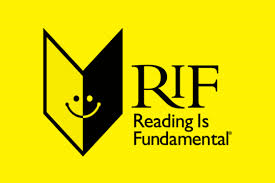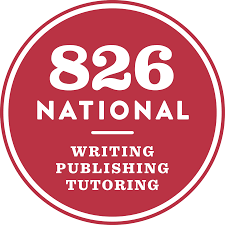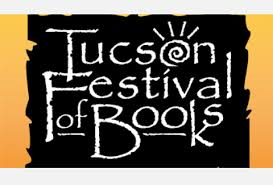
What are you reading? What was the last book you read? These are two of my favorite questions to ask in order to jump start a conversation with an old friend or a new acquaintance. It always warms my heart when I listen to someone talk about a book they are reading or when I receive a book recommendation.
Recently I received two books, one from a close friend and the other from a new business colleague; I eagerly began reading both of them. Truth be told, if you looked beside my bed, you would see that I generally have three or more books in process at any one point in time. I simply love books! I love the feel of a book in my hands and the comfort gained from knowing one is tucked away inside my briefcase or suitcase realizing it is readily available to take me on a journey or provide new information as soon as I open it.
Recently I learned that approximately 600,000 to one million books are published annually in the United States with almost half of those being self-published. Often I smile when I think of those that were anxious that "books" would go away with the introduction of electronic reading devices. Books are very prevalent in today's society whether in digital or print format. And with that literacy programs are abundant as well as book festivals and book fairs. With the month of February being the "Love of Reading" month, I recently learned much about the issue of reading and literacy, recognizing much of it is worth sharing.
For example, this week, for the seventh year, the Tucson Festival of Books will take place on the campus of the University of Arizona. More than 450 authors will be on hand with an audience expected to exceed 130,000 people over the course of two days (March 14-15). Authors such as Mitch Albom, Amy Tan, Gail Sheehy, Robert Crais, Dave Barry, Scott Turow, Valerie Plame and Catherine Coulter to name a few will be providing insight into their books, writing process as well as sharing some tips and ideas. But more important to the visitor is the opportunity to touch, feel and look at the books with many available for purchase.
The Tucson Festival of Books began in 2009 with 350 authors and presenters while attracting 50,000 individuals over two days. It has grown tremendously while continuing to operate as a nonprofit organization with a mission and focus of improving literacy rates among children and adults. In its mere six years of existence, more than $1 million has been donated to literacy organizations. The Tucson Festival of Books is adding to the resources available for literacy programs and making a difference.
What most people don't realize is that reading and literacy are important to a functioning and healthy society. It is estimated by experts that almost 40 percent of 4th graders in the United States are not achieving basic levels of reading proficiency. As you might suspect, the number is higher among low-income families as well as certain minority groups and those who have English as their second language. Experts share that the dire consequence of a child not being able to read is they may never participate fully in American society. Further, it is predicted that their employment opportunities, "...grow dim and the chance for anti-social behavior increases. In short, they will be viewed as "problems."
In addition to organizations such as the Tucson Festival of Books, many nonprofits are focused on efforts to improve literacy and get books in the hands of people on a national and local level. Let's take a look at some of them.
Reading is Fundamental (RIF) is a nonprofit organization focused on literacy and encouraging young people to read. 
According to the website of RIF, "Literacy is the ability to read and write -- is essential to fully developing a sense of well-being and citizenship. Children who are solid readers perform better in school, have a healthy self-image, and become lifelong learners, adding to their viability in a competitive world." The goal of Reading is Fundamental is to put a book in every child's hands. To many this might seem easy but often for many children books are not available. That is why book fairs and festivals, such as the Tucson Festival of Books, as well as local public libraries are so important in communities.
Literacy DuPage is located in DuPage County in Illinois one of the wealthiest counties in the United States. With wealth, many assume that there is no need for a literacy program. 
But often illiteracy is hidden or looks differently than we would assume it does. Here are three examples of how it could look:
1.It is the successful businessman who is a functioning illiterate who always traveled with his wife who interpreted and read everything to him; then found himself lost when she died before him. How would he function on business trips?
2.It is the woman in her fifties who couldn't read but walked into a nonprofit organization focused on literacy with the dual goals of wanting to learn to read her Bible and know her letters. She now sees words everywhere, even in her dreams.
3.Or the high school dropout who ditched literacy classes his grandpa took him to (dodging out the back door after he was dropped off) until his grandpa caught on and sat in the reception area while he learned. That young man is now in medical school.
The tagline of Literacy DuPage is "Literally changing lives" and this is done through providing free literacy tutoring for adults in west suburban Chicago in DuPage County. Their tutor training teaches people to help a neighbor read, write, speak, and understand English better. The volunteer tutors of Literacy DuPage have helped thousands of people achieve greater success in life through literacy. Literacy DuPage is definitely making a difference in their community as are other literacy groups throughout the country such as Macomb Literacy Partners and 826 | National. 
We think everyone can read. But one merely has to think about it to realize that in many communities adults read below a level of functional literacy. Such individuals have difficulty reading a newspaper, understanding simple directions on a prescription, taking a written test for their driver's license...and for a number of them English is their second language.
Here are some startling statistics:
1. According to a study by the WriteExpress Corporation findings show that low literacy directly costs the healthcare industry over $70 million every year.
2. It is projected by the same study 2/3 of students who cannot read proficiently by the end of 4th grade will end up in jail or on welfare. Over 70% of America's inmates cannot read above a 4th grade level.
3. Even more shocking is that one in four children in American grow up without learning how to read according to the same study.
These statistics should shock us into a new reality and into wanting to do something. Here are my top five (5) tips for making books important, supporting literacy efforts and insuring you will be making a difference:
1.Go to book festivals and fairs like the Tucson Festival of Books; visit with authors of genres you normally don't read with the goal of learning something new.
2.Make donations to local literacy efforts in your community and nationally.
3.Start a book club for kids. Studies show that kids who don't read proficiently by 4th grade are four (4) times likelier to drop out of school.
4.Consider donating the books you have at your home and office, especially those you will not be reading again. You can donate them to a local library, school, domestic violence center, Boys and Girls Club, YWCA, YMCA, Big Brothers/Big Sisters program. The list goes on and on.
5.Make time to read. And read to younger children. People, especially children, will emulate your behavior.
BONUS Tip: Visit and/or volunteer at your local public library. They are an amazing resource in your community.
Reading is so important. Books are important. Literacy is critical. Become involved. By doing any of these recommendations, you will be assured of Making A Difference (M.A.D.)!
